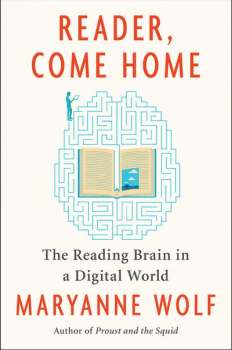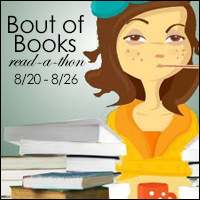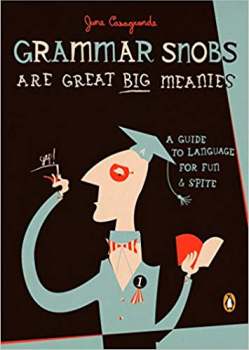a selection from:
Reader, Come Home: The Reading Brain in a Digital World
Maryanne Wolf
HarperCollins, 2018
Besides book reviews, I read a lot of articles online about literature in general, often discovered through email newsletters I have joined. One of my favorite literary sites with a newsletter is Literary Hub: The Best of the Literary Internet. From their about page:
Literary Hub is an organizing principle in the service of literary culture, a single, trusted, daily source for all the news, ideas and richness of contemporary literary life. There is more great literary content online than ever before, but it is scattered, easily lost—with the help of its editorial partners, Lit Hub is a site readers can rely on for smart, engaged, entertaining writing about all things books. Each day—alongside original content and exclusive excerpts—Literary Hub is proud to showcase an editorial feature from one of its many partners from across the literary spectrum: publishers big and small, journals, bookstores, and non-profits.
I highly recommend their newsletter, but be forewarned: It is always very interesting and therefore can be very distracting!
This week Lit Hub featured an article entitled "What Does Immersing Yourself in a Book Do To Your Brain?: On Neurochemistry, Lucia Berlin, and the Dangers of Empathy Loss". It is a long selection, maybe a chapter, from a new non-fiction book "Reader, Come Home: The Reading Brain in a Digital World" by Maryanne Wolf. It piqued my interest because 30+ years ago I was an assistant in a lab researching how the brain affects the immune system. Ever since I have been fascinated by the results of brain research.
There is a lot going on in this article, which makes it hard to summarize. I learned so much about how the brain reacts to reading. Wolf, the Director of the Center for Reading and Language Research at Tufts University, talks about studies showing that reading about an action can stimulate the same areas of the brain as actually performing that action. I think this is similar to the use of imagery by athletes, where they sort of practice in their head, in simple terms. From such studies, she shows how reading literature can help the reader become more empathetic to people from vastly different cultures, a skill manifestly in short supply these days.
We welcome the Other as a guest within ourselves, and sometimes we become Other. For a moment in time we leave ourselves; and when we return, sometimes expanded and strengthened, we are changed both intellectually and emotionally.
The writing is not technical but rather informal, aimed at a general audience who are probably college educated or well-read. It's written in epistolary form, which is somewhat unusual for a non-fiction work. In an interview with Publishers Weekly, Wolf replied to a question about the format by saying:
I realized that a lot of readers are going to not only disagree with me but also have perspectives that differ greatly from my own. The letter format provides an opportunity for the reader to see this is a dialogue. Thomas Aquinas once said that iron sharpens iron, and that’s really what I was trying to do with the letter format. I want my thoughts to be an incentive for the reader to give his or her own thoughts.
The article is excellent and I need to re-read it to fully soak in all that she talks about. And I have added the full book to my reading list. I think the most striking idea I took from this article is the concept of a neuroscience of literature.
These studies are the beginning of increasing work on the place of empathy and perspective taking in the neuroscience of literature.
FURTHER READING
Dear Reader: PW Talks with Maryanne Wolf
https://www.publishersweekly.com/pw/by-topic/authors/interviews/article/76965-dear-reader-pw-talks-with-maryanne-wolf.html
"What Does Immersing Yourself in a Book Do To Your Brain?"
https://lithub.com/what-does-immersing-yourself-in-a-book-do-to-your-brain/
Literary Hub
https://lithub.com/






